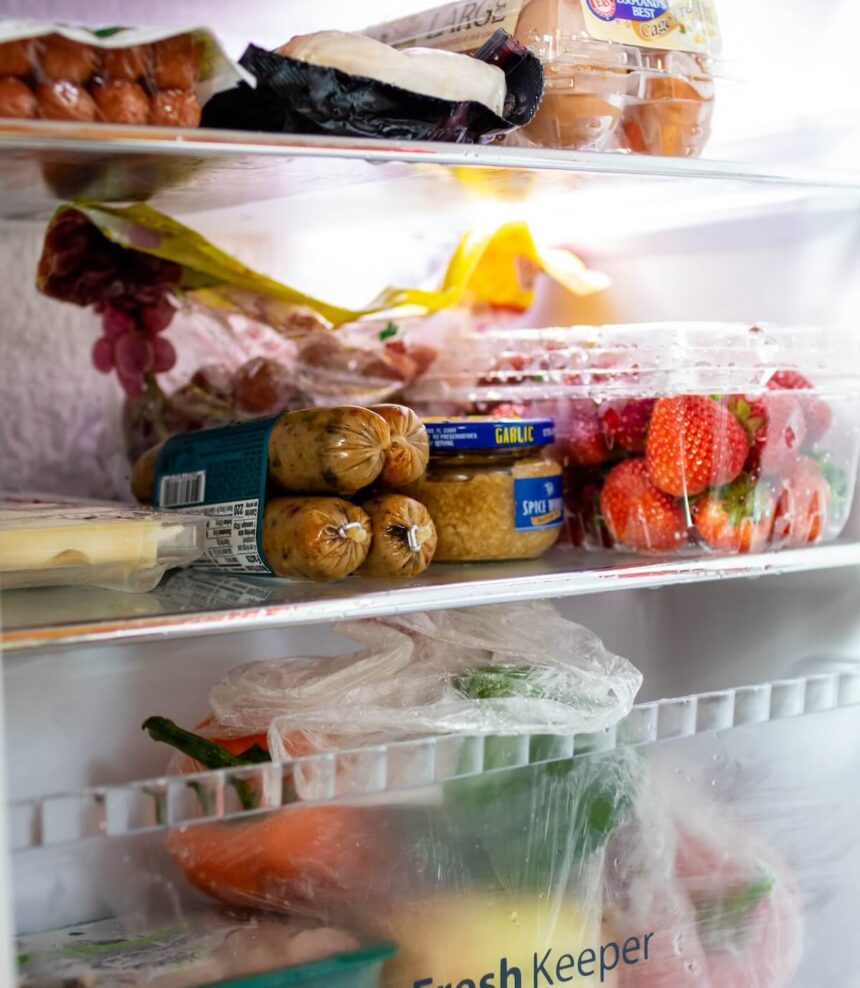Your family and career take up a lot of your time. This leaves you with little time to cook, even if you want to throw on an apron and roll up your sleeves.
Grocery stores have caught on, providing us with convenient freezer meals. They’re nothing you have to slave over. Just pop it out of the box, warm it up, and enjoy a well-deserved meal. But are freezer meals all that good for you?
Benefits of Freezer Meals
Time
Freezer meals save time. Plain and simple. They cut out shopping time, as well as meal preparation and cooking time. All the work’s been done for you, and at about three dollars a pop, it seems like a good deal.
This is especially appealing if you don’t like cooking, or simply don’t have enough time to cook meals from scratch.
Long-Lasting
If you have enough storage, you can easily stock up on a month’s worth of meals. Freezer meals can last anywhere from three to four months.
Portion Control
With frozen dinners, you’re probably not going to overeat – if you eat just one, that is. The portions are already chosen, and this can limit your caloric intake.
Variety
There’s no shortage of choices when it comes to frozen meals. You can choose from a wide variety of meat and vegetable combinations, junk food, healthy food, low-fat options, and ethnic varieties.
If you feel like you’re not a very creative person in the kitchen, freezer meals can do a lot of that creative thinking for you.
Why You Shouldn’t Eat Freezer Meals
While freezer meals have convenience on their side, the nutrients in food get sacrificed in the production process.
Loss of Enzymes
Enzymes are proteins that get damaged if food is heated above 105 degrees. Because freezer meals are cooked at such high temperatures, and then kept frozen for so long, enzymes are practically destroyed by the time you eat a freezer meal.
Loss of Biophotons
Biophotons help to regulate function within the cells. The biophotons in food gather their light from the sun. When we eat recently grown and harvested foods, we receive more of these substances. This, in turn, leads to healthier and happier cells.
But if your food has been cooked, processed, frozen, and packaged, there’s little chance that these precious biophotons have survived. When you eat freezer meals, you miss out on these invaluable nutrients and their benefits.
Too Much Sodium
In order to serve up a tasty, appetizing meal, manufacturers have to add a lot of salt to their TV dinners. A high-sodium diet is harmful to everybody and can lead to high blood pressure and heart problems.
Unfortunately, most frozen meals are laden with not only salt but other detrimental preservatives and additives. They’re necessary to keep the food safe for human consumption, but you end up eating a sub-par product.
High Fat Content
While many freezer meals are low in calories, they are high in fat. In fact, the fat content of some meals can make up 20% of the entire caloric count. This may be more than you intend to eat in one sitting.
Food Safety Concerns
Of course, this doesn’t happen in every production facility, but quality can suffer if they’re not careful. When the FDA conducted a routine inspection within Kellogg’s manufacturing site for frozen meals, they detected Listeria monocytogenes. This was found not once but twice during their follow-up inspection.
Obviously, this is not to say that all frozen food manufacturing fails to meet food safety requirements. But the more your food is processed, and the further it goes from the original source, there’s more risk for contamination.
Not Enough Calories
One of the proud claims of freezer food is its low caloric content. Some of these meals clock in at only 300 calories. This is too low for one meal and doesn’t leave most people satiated. This means you’ll end up snacking to satisfy your hunger even after you’ve had a frozen dinner.
Unfortunately, the snacks you eat are probably processed and high in both empty calories and sodium. Clearly, a good meal should keep you feeling full, so you don’t need to indulge in unhealthy snacking.
Skimping on the Veggies
There are vegetable servings in the frozen meals, but the amount is usually quite small – too small for the recommended serving amounts. And let’s face it, if you’re not going to cook dinner, you’re probably not going to prepare extra vegetables for yourself.
Unfortunately, many people rely on these frozen meals to meet their nutritional requirements. But these meals fall short when it comes to vegetables.
Easy Alternatives to Freezer Meals
If you want to cut back on the number of store-bought freezer meals you eat but are still tight on time, don’t worry. There are several easy options you can try. Here are just a couple.
- Cook in Large Batches: You can roast chicken and vegetables in the oven and then use them for delicious lunch or dinner throughout the week. All without sacrificing a lot of time in the kitchen every day. You can then use meal-prep containers to store the food in the freezer for the entire week.
- Make a Big Pot of Soup: Soups are almost foolproof. They require a lot of time upfront when it comes to chopping and dicing. But once everything’s in the pot, it can cook for hours while you go on with the rest of your day. You can store soup easily in the fridge if you plan to eat it soon. Or, you can store it safely in the freezer for up to 2 months.
- Use Your Crockpot: You can cook a delicious meal in your crockpot, even if you have to work all day. How’s that for multi-tasking? You can prepare soups, roasts, and vegetables in it. Plus, it’s such a treat to come back to the aromas of a home-cooked meal. What’s more, it’s much healthier for you, too.
- Cook Simple Recipes: Recipes that require fewer ingredients and little preparation time are great places to start when you’re trying to avoid freezer meals. This Teriyaki Meatball Bowl is affordable and delicious. And so is this Slow Cooker Chicken Taco Bowl.
There’s no doubt about it: freezer meals are convenient. But you can enjoy healthier, yummier meals without them. Try one of these homemade options, and see for yourself.








